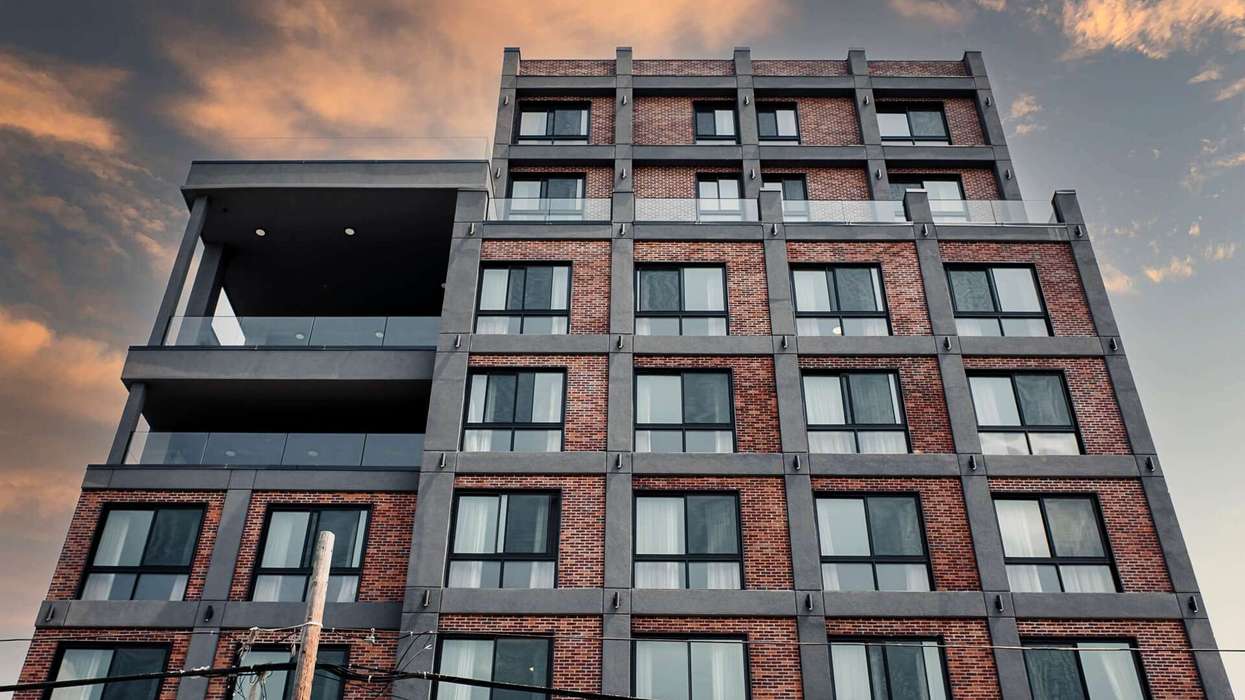THE HOTEL BUSINESS in Niagara Falls, New York, has fallen dramatically since the beginning of the COVID-19 pandemic, as it has across the country. A group of local hoteliers are taking advantage of their newfound, and unwanted, free time to provide a new service to the local community: making facemasks for residents and healthcare workers to help prevent the spread of the virus.
You can call it accidental philanthropy.
“It was not like some kind of planned or organized thing. We said just quickly make as many as you can,” said Vibhu Joshi, owner of Microtel by Wyndham Niagara Falls, one of the mask makers.
Joshi opened the Microtel in 2017 after owning a Days Inn and Super 8 before. His occupancy has been seriously affected.
“Niagara Falls is not a place you just drive through, you have to come to Niagara Falls,” he said. “Our main traffic is coming from international destinations. A vast majority are coming from Canada. The Canadian people like to come here and do the shopping, like Christmas time and Thanksgiving. They keep us busy year-round. Now, they’ve shut down the Canadian border so nobody can come here, nobody can go there.”
Also, many Chinese tourists usually come in the spring and fall. No more.
“There is not much going on, except some people have to come here for some garment work,” he said. “More than 50 percent of the hotels are already closed.”
That basically includes his.
“We stayed open, but there were no customers. Once and a while we got visitors, one or two, so we served them but other than that, we have plenty of time,” he said.
So, to stay busy, they started making facemasks, inspired by news reports of shortages.
“On the internet there are so many places that show you how to make a mask. Basically, in the hotel industry, you always stay busy doing something all of the time. You don’t sit around. So, when you have mandatory sitting around, you want some kind of activity.”
All the better if that activity benefits the local community they support year round, he said.
“So, we thought, maybe we have free time and we have some talented people who know how to sew,” Joshi said.
Because none of them had made facemasks before, the group of hotel owners came together to make the first batch, then started making them on their own. They used old bedsheets from their hotels and material they bought at Walmart. When they didn’t have enough elastic the pulled what they needed from fitted sheets.
“You can do 15 to 18 masks out of one bedsheet,” Joshi said.
They wash the finished facemasks, dry them at high heat and then iron them to disinfect them before putting them in a bag. Some they donated to local medical centers, including the Erie County Medical Center in Buffalo, New York. But demand soon spread.
“People saw what we’re doing on Facebook and hotel owners who were not involved, they called us and said ‘Hey, can I buy a few?’” Joshi said. “I said you don’t need to buy, we’ll give you for free.”
Joshi said he’s glad that people are becoming more aware of the steps necessary to stop the spread of the coronavirus.
“Until now not everybody was serious because everything was happening in New York City,” he said. “Now it’s coming home. So now people are aware and I’m glad. I’m glad to give the masks away free of charge so that way they can protect themselves and protect the community.”
More than 15 people are making the facemasks, Joshi said, many of them members of the Gujarati Samaj of Buffalo / Western New York. AAHOA also has sponsored the mask making, and the group has made more than 2,000 masks.
But Joshi said they don’t want any special attention.
“Anyone would do this in our position,” he said.
And some have.
Palace Inn Franchising in Houston encourages its franchisees make a positive impact in their communities, said Raj Das, the company’s president for development.
“Our hotels including many of our franchisees have donated to causes to provide PPE and masks to municipal workers who are in desperate need of this equipment,” Das said. “It is fulfilling that even in our greatest time of need we are still able to extend our hand to help others.”
Vision Hospitality Group in Chattanooga, Tennessee, which had to lay off 1,100 of its 1,500 employees, sent care packages to the furloughed workers over Easter, said Mitch Patel, the company’s president and CEO.
“This is an unprecedented time in our lives, and I believe the American spirit will prevail,” Patel said in a statement. “One thing is certain is that this time will pass and because of our strong commitment to our people and our values we will thrive once again.”
Joshi also had to lay off his 11 employees at the Microtel, but he remains optimistic for their return.
“I told everybody we’re going to hire you back, as soon as guests start coming in I want you all because you have worked in this environment, you’re used to me and I’m used to you, I don’t want to look for anyone else,” he said.





